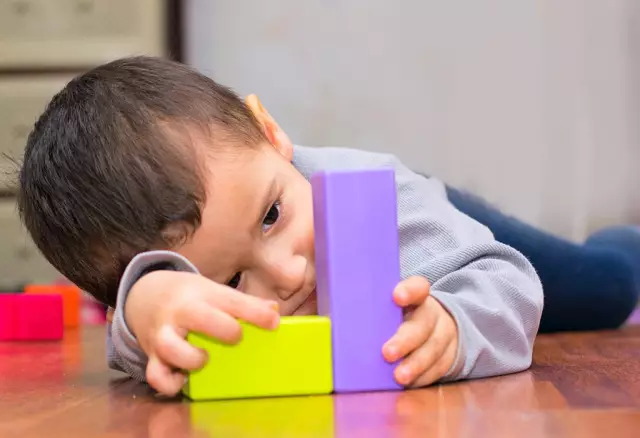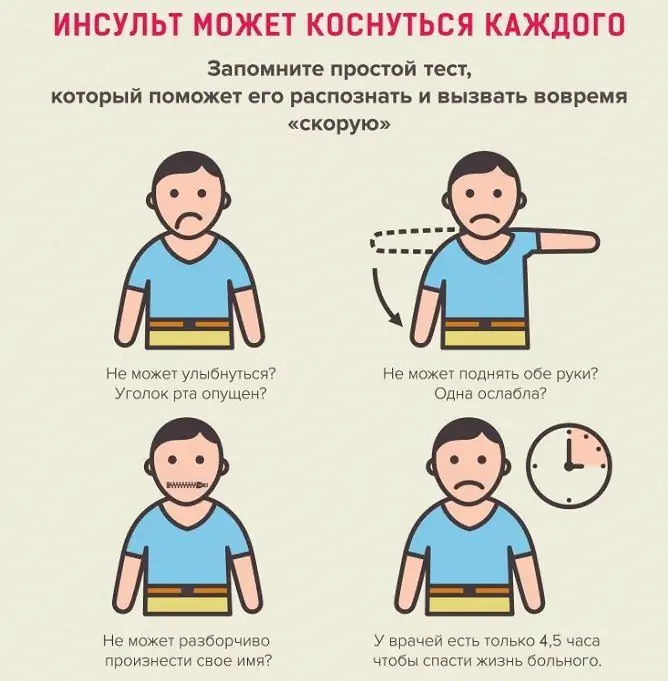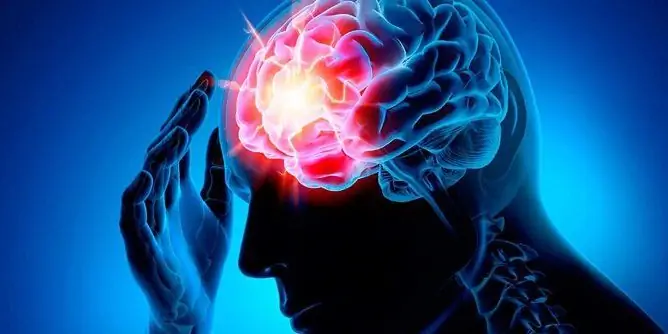- Author Rachel Wainwright wainwright@abchealthonline.com.
- Public 2023-12-15 07:39.
- Last modified 2025-11-02 20:14.
Autism
Autism. General characteristics

Autism is a disorder of mental development, which is characterized by such signs as: disorders of motor skills and speech, stereotyped behavior and activity - all this leads to a deficit in social interaction. This neurobiological disorder, caused by a violation of interhemispheric connections, accompanies a person throughout his life, but signs of autism appear even in childhood.
Today, autism in children is not uncommon - one child of 150 suffers from these mental disorders. According to statistics, autistic disorders are observed in all social, ethnic and racial groups, but boys are more susceptible to this disease than girls. Most often, this disorder is diagnosed in children under 3 years of age. In some cases, it is possible to recognize autism, the causes of which are still not fully understood, in six-month-old children.
To date, scientists still cannot speak with absolute certainty about the causes of autism, since the nature of this disease is rather complex and unclear. It has been established that autistic disorders are associated with genes, but what exactly - the interaction of a large number of genes or the influence of rare mutations - is the impetus for the development of autism is unknown.
Since this pathology in many cases is accompanied by damage to the temporal lobes, cerebellum, and brain stem, we can say that the causes of autism are not limited only to a genetic predisposition. The impetus for the development of the disease can also be given by chromosomal abnormalities, congenital metabolic disorders, organic lesions of the central nervous system.
Autism symptoms
The signs of autism are most pronounced in childhood, but their softened form is observed in adults.
To diagnose autism in children, a so-called triad is required:
- insufficient social interaction;
- violations in mutual communication;
- limited interests, repetitive behavior, the presence of ritual activities.
The components of this triad can be individually found in healthy people, but only their cumulative manifestation makes it possible to talk about autistic disorders.
A common symptom of autism is food selectivity, but it is not essential for the diagnosis of the disease.
Autism in children can be identified by the following:
- Poorly developed speech. The child, as a rule, understands unambiguous simple words that call him to action - "eat", "sit down", close the door. " Speech reproduction is the repetition of words or parts of words heard on TV or from others. Lack of abstract thinking leads to a lack of understanding of the meaning of such pronouns as "mine", "yours", "her", etc. Problems with speech, as one of the signs of autism, become most pronounced in children in the second year of life.
- Behavior typical of people with physiological disorders. The child behaves in such a way that the impression is created that he is deaf or blind - he does not react to the speech addressed to him, does not make eye contact with his parents.
- The absence of a close emotional relationship between the parents and the child. This sign of autism usually manifests itself even in infancy, when the baby does not try to snuggle up to the mother, resists physical contact.
- Lack of interest in toys. The child does not have the ability to play with toys, if he shows interest in them, then he has a very unusual character: he turns the wheels of an inverted machine, sucks a doll, twists a piece of rope.
- Inability to communicate and play with peers. There is a perception that children with autism prefer being alone to playing with other children, but this is not always true. In most cases, the lack of communication with peers is due precisely to the inability, and not the unwillingness of the child to contact and play.
- Attacks of rage and aggression. Autism in children is very often accompanied by outbursts of anger, which can be directed both at themselves and others. Even to the slightest prohibition or obstacle, the child can react aggressively: beat, scratch, bite.
- Repetitive stereotyped actions. A peculiar ritual behavior of a child is one of the symptoms of autism: swinging the whole body from side to side, rotating objects, clapping his hands, staring at the light or rotating objects, spinning in one place, squatting or jumping in one place for a long time.
Symptoms of autism that can be noticed already in the first year of a child's life:
- unusual gestures;
- late babbling;
- weak reaction to communication;
- inconsistency in the exchange of sounds with adults.
In many cases, autism is accompanied by a number of physiological problems, which manifest themselves in the form of:
- the inability to cleanse the body of heavy metals;
- intestinal permeability syndrome;
- incomplete digestion of glutein and casein;
- neurological changes;
- deficiency of chromium, selenium, zinc, magnesium, vitamins A, C, E, B6, B12, folic and niacin.
Autism treatment
The most common treatment for autism is behavioral therapy that rewards correct behavior. In the case of using this therapy at an early stage of the disease, it is possible to teach children to serve themselves and communicate with other people. Treatment for autism can include physical and speech therapy, depending on the individual child. Signs of autism, such as obsessive-compulsive disorder or depression, usually require medication.
Family therapy in the treatment of autism is of great importance, as parents and relatives can be of great help to the child in the process of adapting to the outside world. Parents caring for a child with autism should carefully plan breaks during the day to save the physical and mental energy needed to care for such a baby. When the child grows up, it is recommended to seek help from others, since it is quite difficult to cope with this problem alone. It is also very important for communication and mutual assistance between families in which the same special children grow up.
Effective treatment of autism is based on the qualified help of doctors and the most adapted behavior of parents to the needs of the child.
YouTube video related to the article:
The information is generalized and provided for informational purposes only. At the first sign of illness, see your doctor. Self-medication is hazardous to health!






